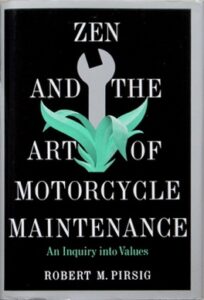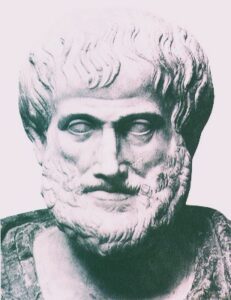In a recent column, the New York Times’ Frank Bruni recounted an article from a historian of education who mentioned a recent Columbia University graduate who shamelessly boasted about his ability to skate through his years mostly using A.I. The original conversation was recalled by James Walsh and mentioned in an article entitled, “Everyone Is Cheating Their Way Through College.” At the same time another higher education expert told Bruni that “in the minds of our students, [college] has become highly instrumental and transactional.” When Walsh asked the student why he bothered with the Ivy League “only to offload all of the learning to a robot,” he answered that Columbia was an optimal place to meet the co-founder of a start-up and find a wife.
Obviously, as a representation of some students in higher education, this is disheartening. Are our best institutions producing graduates with a moral sensitivity that is as low as our President’s? Shouldn’t they know that the capability to copy and paste someone else’s thoughts is a long way from owning those ideas and being able to act on them?
Useful knowledge is precious. It can become part of the “equipment for living” that thinkers promise for any language of action. But lifting ideas from others is not the same as owning them. For example, I could take most A.I. descriptions of the key term “credibility” and sound like I know what I’m talking about. An A.I. definition at least superficially signals knowledge and awareness, but does not necessarily indicate real mental processes that give the idea life. Hence the definition that it “refers to the quality or characteristic of being trusted and believed” is a harmless statement, but is not the same thing as the rigorous mental work of testing and detailed cross-referencing to understand a source’s credibility. In short, using A.I. descriptions is not the same as acting on its specific processes.
Imagine another case. I might make a guess that Canada is ripping off the U.S. in some sort of trade arrangement, but I can’t truly accept that claim if it has come from a source that has labored under the view that this is also true of every other nation. This is the unmoored thinking of Donald Trump. As our defacto Minister of Slights, his faith in tariffs comes with a long held-bias that every nation is suspect and probably a worthy target of retribution. Those psychological motives are surely real, but beyond actual circumstances on the ground that could be assessed by a fair-minded expert. Thus, “credibility” is the result of considered judgment and knowledge, not something that just comes, a-priori, from a twisted set of norms.
![]()
Full and complete competence has to be earned, but seems to be more easily elluded if an A.I. substitute can be passed off as one’s own cognitive work.
![]() What is intriguing about all of this is that it represents the nature of high competence that classical thinkers sought to understand. Their preferred words like “wisdom,” “aréte,” (excellence), or high “quality.” In Aristotelian and Platonic ideals, a person of evident “virtue” was worthy of belief. There should be no false front in the presentation of one’s own character. There should be no unearned pretensions. In plain language, an expert is worthy of attention when the “high ethos” of their character aligns with real knowledge and ethical intentions.
What is intriguing about all of this is that it represents the nature of high competence that classical thinkers sought to understand. Their preferred words like “wisdom,” “aréte,” (excellence), or high “quality.” In Aristotelian and Platonic ideals, a person of evident “virtue” was worthy of belief. There should be no false front in the presentation of one’s own character. There should be no unearned pretensions. In plain language, an expert is worthy of attention when the “high ethos” of their character aligns with real knowledge and ethical intentions.
 All of these indicators of “excellence” are what motivated Robert Pirsig in his well-known quest laid out in Zen and The Art of Motorcycle Maintenance (1974). In the guise of a memoir of travel across the West he drifts into an interior monologue that keeps showing up. He compulsively revisits moments when his study of classical thought left him troubled by the lack of practical wisdom in the people he encountered. Consider his description of two uninvolved and distracted mechanics who were asked to diagnose a problem with his old motorcycle.
All of these indicators of “excellence” are what motivated Robert Pirsig in his well-known quest laid out in Zen and The Art of Motorcycle Maintenance (1974). In the guise of a memoir of travel across the West he drifts into an interior monologue that keeps showing up. He compulsively revisits moments when his study of classical thought left him troubled by the lack of practical wisdom in the people he encountered. Consider his description of two uninvolved and distracted mechanics who were asked to diagnose a problem with his old motorcycle.
The shop was a different scene from the ones I remembered. The mechanics, who had once all seemed like ancient veterans, now looked like children. A radio was going full blast, and they were clowning around and talking and seemed not to notice me. When one of them finally came over he barely listened to the piston slap before saying, “Oh yeah. Tappets.”
Pirsig eventually paid a $140.00 repair bill for services that failed to remedy the engine problem. He later discovered that the noisy piston was caused by a damaged twenty-five cent pin accidentally sheared off by another careless mechanic. “Why,” he wondered, “did they butcher it so?” What evidence did they provide that indicated they were less than fully competent mechanics?
The radio was the clue. You can’t really think hard about what you’re doing and listen to the radio at the same time. Maybe they didn’t see their job as having anything to do with hard thought, just wrench twiddling. If you can twiddle wrenches while listening to the radio that’s more enjoyable.
Their speed was another clue. They were really slopping things around in a hurry and not looking where they slopped them. More money that way. . . .
But the biggest clue seemed to be their expressions. They were hard to explain. Good-natured, friendly, easygoing—and uninvolved. They were like spectators. You had the feeling they had just wandered in there themselves and somebody had handed them a wrench. There is no identification with the job. No saying, “I am a mechanic.” At 5 PM or whenever their eight hours were in, you knew they would cut it off and not have another thought about their work. They were already trying not to have any thoughts about their work on the job.
![]() The book does not have much more to say about motorcycles, but it is full of the thoughts of a man on a quest to understand what “quality” and “aréte” can mean when applied to our own lives. I’m afraid he would be troubled by the intimations of excellence represented by the clueless student who thought he pulled off a perfect deception. The student may have deceived Columbia, but soon enough the rest of us must deal with more like him who have credentials but not competance.
The book does not have much more to say about motorcycles, but it is full of the thoughts of a man on a quest to understand what “quality” and “aréte” can mean when applied to our own lives. I’m afraid he would be troubled by the intimations of excellence represented by the clueless student who thought he pulled off a perfect deception. The student may have deceived Columbia, but soon enough the rest of us must deal with more like him who have credentials but not competance.




